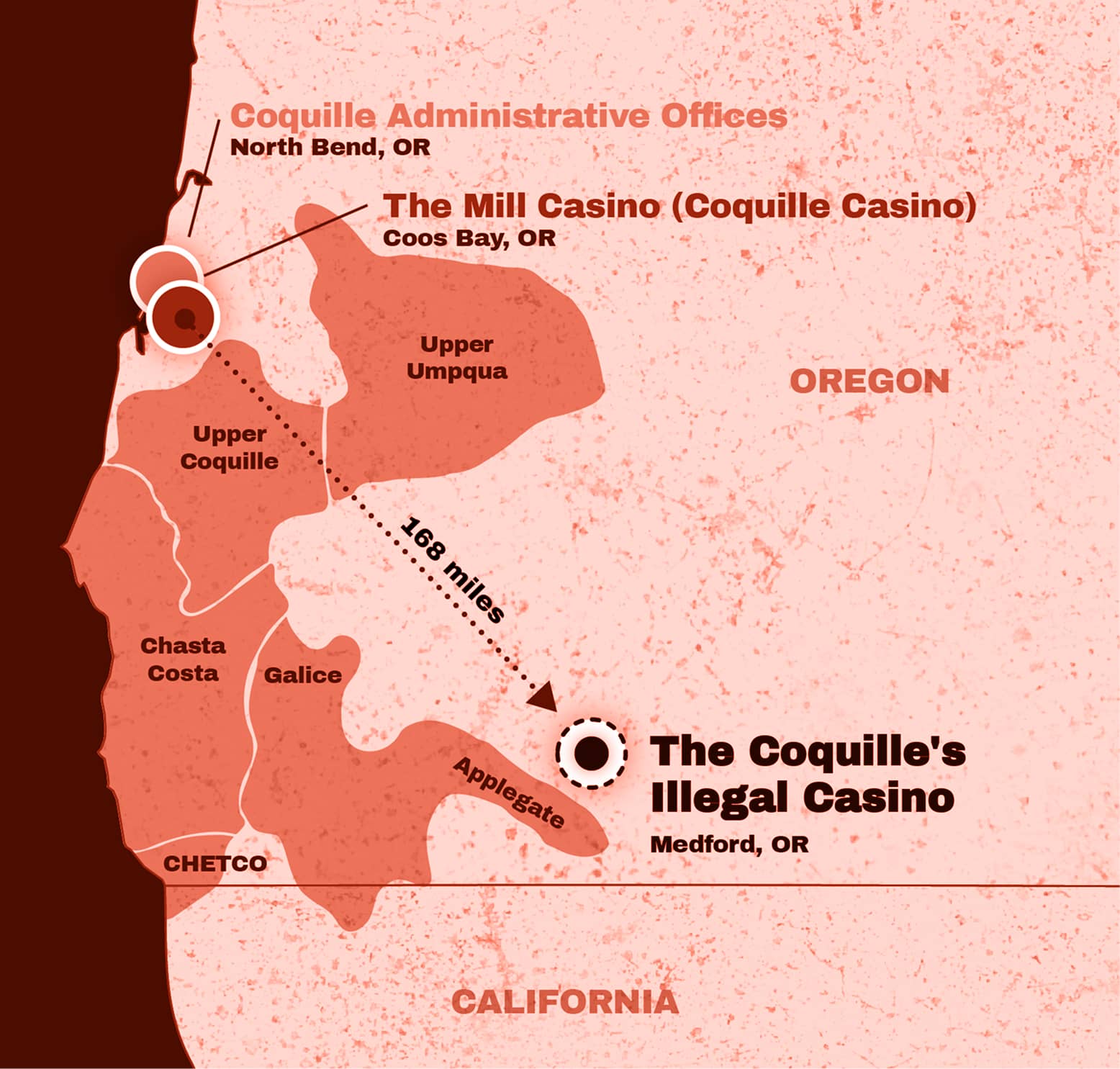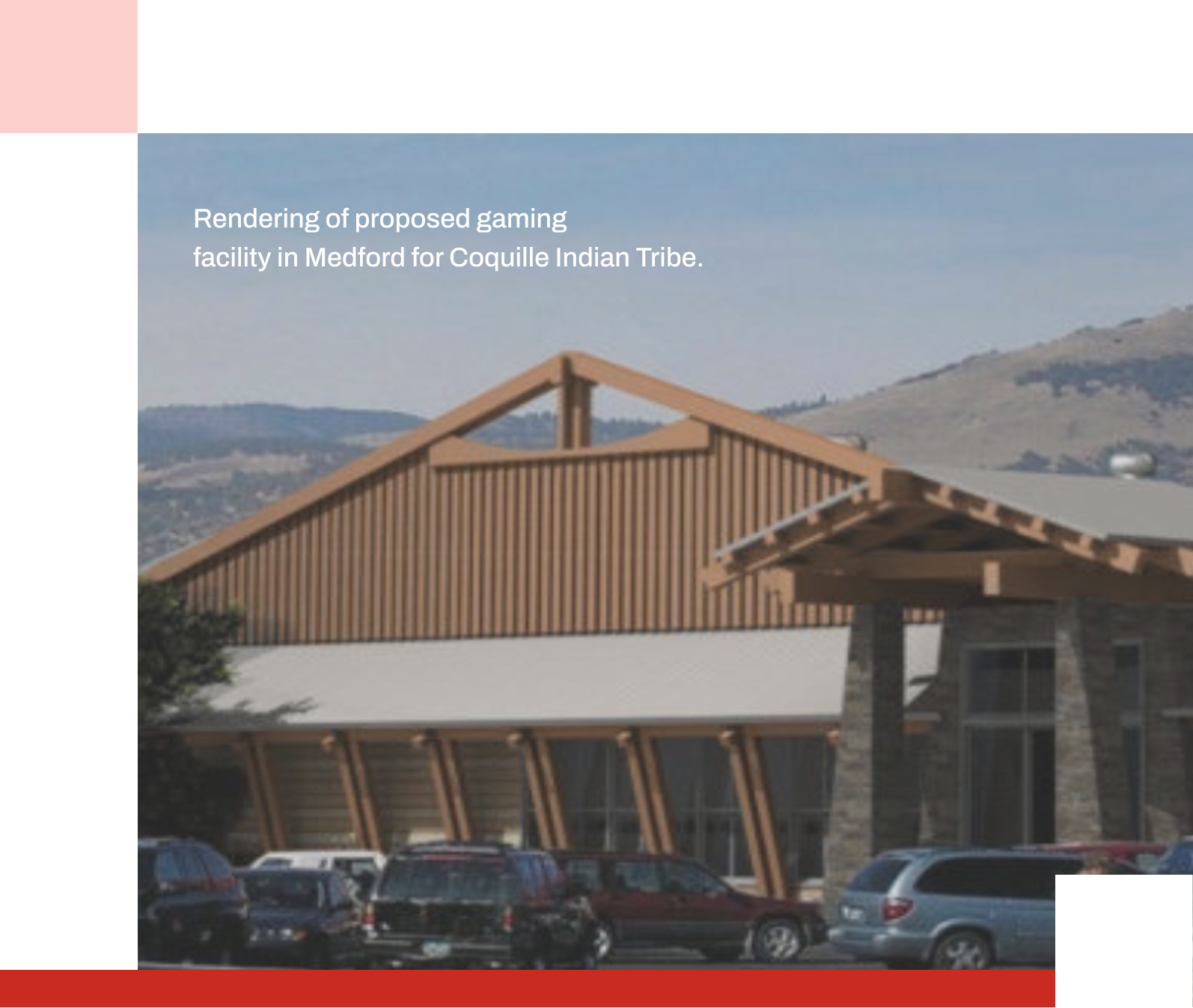
The Facts
The Facts of the Coquille Reservation Jumping
The Coquille Tribe has no historical presence in the watershed of the Rogue River and cannot document any village or sustained use of the region until the 1950s when a member of the tribe, later serving on the tribal council, became a college student in Ashland and subsequently settled in the area.
The acquired land recklessly approved for the Coquille Tribe to build a second casino on is 168 miles and three hours drive from their existing administrative offices. This is a glaring example of ancestral fraud and reservation jumping to gain economic advantage over other tribes.


The Coquille Tribe base their aboriginal claim on the land in Medford on an erroneous and self-serving report that has been discredited by respected historians. This amounts to an “ancestral fraud” that uses bad data and ignores clear historical facts to lay claim to land that is not theirs.

The Coquille Tribe never significantly utilized the Rogue River Valley. Rather these areas are historically of the Rogue River Tribe, who now occupy the Grand Ronde Reservation. Furthermore, Indians of the Rogue Valley spoke Takelma and Shasta languages and neither are related to the ancestral languages (Athpascan and Kusan) of the Coquille Tribe.

The request for moving the 2.6 acres of land into Trust is a bald attempt at casino jumping with a willful disregard for the significant economic damage it will cause to other Native Tribes in the region.

Built on a false history
Coquille Tribe justifies their application to take the land into trust through a deeply flawed and self-serving report entitled Coquelle Trails: Early Historical Roads and Trails of Ancestral Coquille Indian Lands 1826-1875.
In his review of Coquelle Trails Dr. Stephen Dow Beckham, the Pamplin Professor Emeritus at Lewis & Clark College, and a noted American historian known for his work with Native Americans and the American West, especially the Pacific Northwest, noted the study “includes lands demonstrably not occupied or used by the ancestors of the modern Coquille Tribe”, including that “the inflation of the study area to 1.4 million acres…is a significant error [of the study.]”

